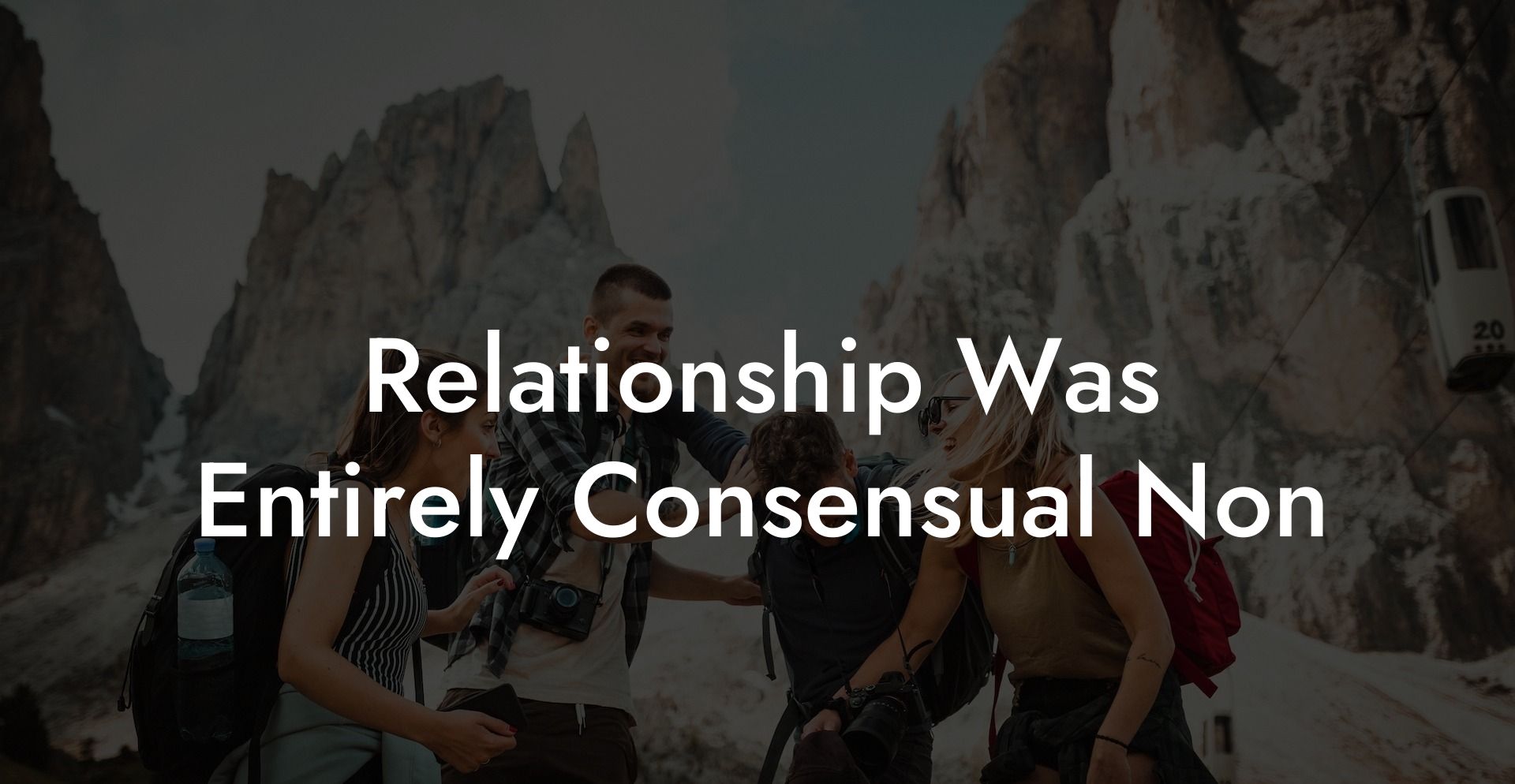The term "consensual non-romantic" might sound like a paradox at first, but it is a growing phenomenon in modern love where relationships evolve beyond traditional romantic boundaries. In this article, we will explore the concept of consensual non-romantic relationships and examine how such a connection can be fulfilling and powerful, and how it might differ from monogamy and non-monogamy. Let's embark on this exciting journey of contemporary love and take a deeper look into the world of consensual non-romantic relationships.
Relationship Was Entirely Consensual Non Table of Contents
Defining Consensual Non-Romantic Relationships
In a consensual non-romantic relationship, the individuals involved seek emotional and physical intimacy without romantic or traditional commitments. This can manifest in various ways, including close friendships with a physical aspect, deep connections based on intellectual stimulation, or emotional support without romance. The fundamental aspect here is the mutual agreement between the parties to develop and maintain such a non-traditional bond.
Consensual Non-Romantic Versus Monogamy and Non-Monogamy
- Monogamy: Traditionally, monogamous relationships involve two people who are romantically committed and exclusive to one another. They share emotional, intellectual, and physical intimacy and have a bond based on love, trust, and loyalty.
- Non-Monogamy: Non-monogamous relationships allow for multiple romantic and/or sexual partners - such as in open relationships, swinging, and polyamory - with the consent and awareness of all parties involved. People engaging in consensual non-monogamy continue to define their partnerships based on trust, communication, and emotional connections.
- Consensual Non-Romantic: In contrast to monogamy and non-monogamy, consensual non-romantic relationships prioritize emotional and intellectual connections over romantic bonds, focusing on friendship, support, and shared interests. The physical aspect may be present, but it is generally secondary to other forms of intimacy. Individuals in these relationships can be involved with others, but have a clear understanding that their dynamic is not based on romantic expectations.
Why Choose Consensual Non-Romantic Relationships?
Several reasons people seek consensual non-romantic relationships include:
- Seeking connections beyond societal norms and limiting boxes of traditional relationship structures.
- They may not desire a romantic commitment, but crave deeper emotional and intellectual connections.
- Such relationships can provide opportunities to build trust, explore boundaries, and learn new perspectives on love and relationships.
- Consensual non-romantic relationships can act as a stepping stone for those considering non-monogamous lifestyles, easing people into the idea of engaging with multiple people in a more open and accepting manner.
Relationship Was Entirely Consensual Non Example:
Jane and John have been best friends for years and share a deep connection that has nothing to do with romantic love. They enjoy spending time together, engage in thought-provoking conversations, offer emotional support, and even explore their physical connection occasionally. They both have romantic partners and have communicated to them about their unique friendship. Jane and John have a consensual non-romantic relationship, which allows them to build stronger bonds with their partners while still nurturing their important and unique friendship. They continue to redefine their relationship as they grow and evolve, always with open lines of communication and mutual respect.
The world of consensual non-romantic relationships is vast and complex, with each individual relationship creating its own unique path. As we move forward in a world where the boundaries of love, intimacy, and commitment become increasingly fluid, embracing the idea of consensual non-romantic relationships only helps to expand our notions of human connection. We encourage readers to continue exploring the guides on The Monogamy Experiment and share this article with those who might resonate with consensual non-romantic relationships.













